How to cite this article: David Flusser, “The Decalogue and the New Testament,” Jerusalem Perspective 29 (1990): 6-10, 15 [https://www.jerusalemperspective.com/2534/].
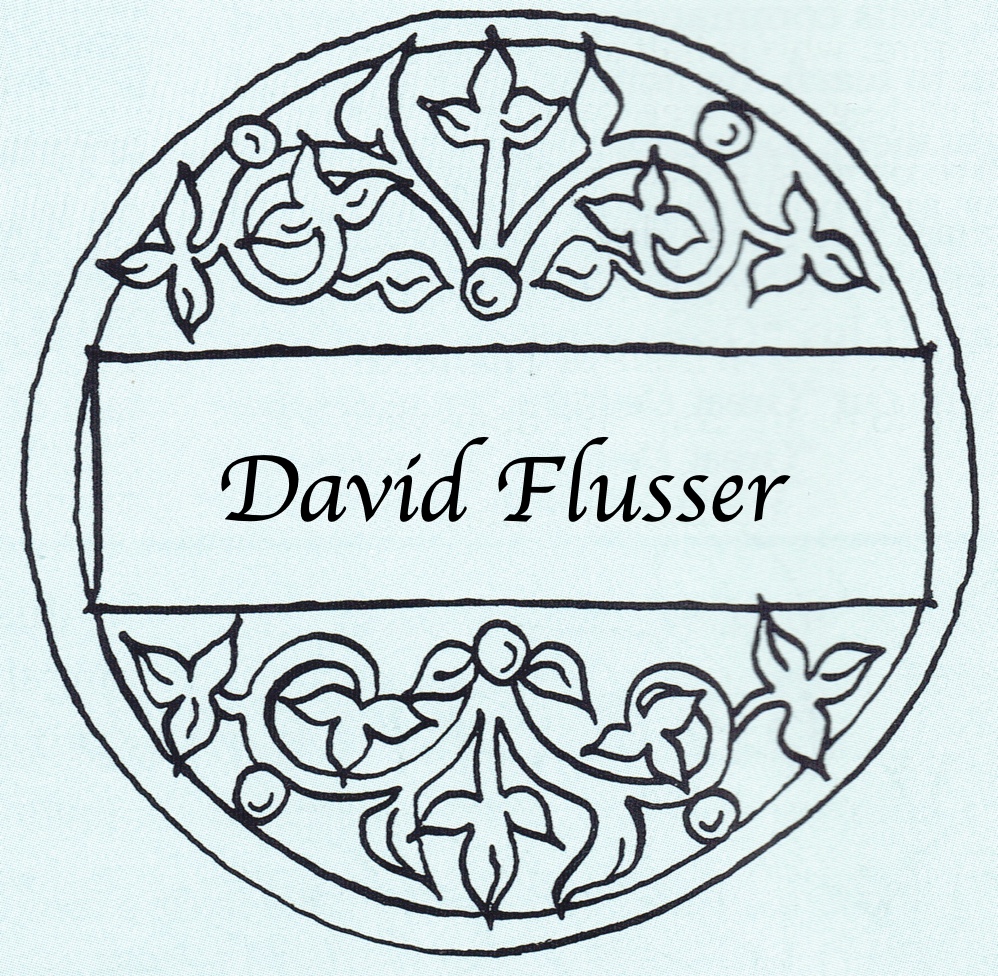
From the time of the earliest church fathers, Christians have assigned an even more exalted position to the Decalogue than have Jews. In order to draw a clear distinction between the two religions, early Christians reasoned that their teachings were superior to those of Judaism. Some went so far as to claim that the Torah had been superseded. However, the high value which Christians assigned to the Ten Commandments was at no time affected by these attitudes. Quite the contrary, it was exactly the broad general character of the Decalogue, by contrast to the detailed commandments of Judaism, that recommended it to Christians.
In spite of the emphasis which the church has placed on the Decalogue, the New Testament does not use the term “Ten Commandments” even once, and refers only to the last five—the socio-ethical commandments dealing with the relationship between one person and another.
Even these five are not mentioned as a unit except in one pericope found in Matthew 19:16-22 (cf. Mark 10:17-22 and Luke 18:18-22):
A “rich man” asks Jesus, “Master, what good shall I do that I may gain eternal life?” Jesus answers, “Why do you ask me what is good? There is only one good. If you would enter life, keep the commandments… ‘You shall not murder; you shall not commit adultery; you shall not steal; you shall not bear false witness; honor your father and mother.’”
The Golden Rule
The words of Jesus to the rich man are important because Jesus quotes the second half of the Decalogue as an example of the commandments to be kept. Only according to Matthew’s Gospel does Jesus conclude his answer to the rich man with the words, “You shall love your neighbor as yourself.”
A similar situation is reflected in a homily found in the first part of the Sermon on the Mount (Matt. 5:17-48 and parallels). Following an introduction (Matt. 5:17-20), Jesus goes on to discuss the commandments, “You shall not murder” and “You shall not commit adultery,” plus a variant of the commandment “You shall not bear false witness.” After bringing up the matter of “an eye for an eye,” he concludes his homily with an exegesis in Matthew 5:43-47 of the biblical commandment “You shall love your neighbor as yourself” (Lev. 19:18). The conclusion to the whole homily is verse 48, “You, therefore, must be perfect, as your heavenly Father is perfect.”
Rabbi Akiva, commenting on “You shall love your neighbor as yourself,” says, “This is the great principle of the Torah” (Sifra 89b; to Lev. 19:18). Hillel’s famous reply to a pagan became the Golden Rule of Judaism: “What is hateful to you, do not do to anyone else” (Babylonian Talmud, Shabbat 31a). Jesus states this principle in positive terms: “Whatever you wish that men would do to you, do so to them; for this is the Torah and the Prophets” (Matt. 7:12). The Book of Jubilees (circa 150 B.C.E.) combines these two expressions of the rule: Abraham instructed his children and his posterity “to observe the way of the Lord, to act righteously, to love each his neighbor, and to behave towards all men as one treats oneself” (Jub. 20:2).
Regarding the Golden Rule, Hillel commented, “That is the whole Torah, and all the rest is explication—go and learn it.” What he meant by “explication” is that the remaining commandments simply spell out or interpret the Golden Rule. Of course, those who held with Hillel and Akiva that there is but one all-inclusive principle—love of one’s neighbor—believed that the whole Torah was derived from that principle. From this doctrine emerges the literature which stresses the importance of the second half of the Ten Commandments, linked to the verse “You shall love your neighbor as yourself.”
In his Epistle to the Romans Paul declares this verse to be a summary of the second half of the Decalogue:
“You shall not commit adultery, You shall not murder, You shall not steal, You shall not covet,” and any other commandment, are summed up in this statement: “You shall love your neighbor as yourself.” (Rom. 13:9)
The Whole Torah
James links this summary with another principle:
If you really fulfill the royal Torah according to the Scripture, “You shall love your neighbor as yourself,” you do well…. For whoever keeps the whole Torah but fails in one point has become guilty of all of it. For he who said, “You shall not commit adultery,” also said “You shall not murder”…. (James 2:8-11)
Violating one of the last five commandments of the Decalogue is the equivalent of violating them all. This concept is echoed in the following midrash:
You might have thought that a person is not guilty unless he transgresses all these commandments; therefore the Torah says, “You shall not murder, You shall not commit adultery, You shall not steal, You shall not bear false witness, You shall not covet” [Exod. 20:13], in order to make one liable for each commandment separately. That being so, why does Deuteronomy join all these commandments together, saying, “You shall not murder and you shall not commit adultery and, etc.” [Deut. 5:17]? It is to teach us that they are all interrelated. When a person breaks one of them, he will end up by breaking them all. (Mekilta de-Rabbi Shim’on bar Yochai; to Exod. 20:14)
In his introduction to the first section of the Sermon on the Mount, Jesus says that he has come to fulfill the original meaning of the Torah: “For it is easier for heaven and earth to pass away than for one iota or dot of the Torah to become void” (Luke 16:17; cf. Matt. 5:18). Even the smallest portion of the Torah keeps the world going, so that it would be dangerous to discard even the least of the commandments:
Whoever then relaxes one of the least of these commandments and teaches men so, shall be called the least in the Kingdom of Heaven; but he who does them and teaches them shall be called great in the Kingdom of Heaven. (Matt. 5:19)
Jesus requires his disciples to observe the commandments even more strictly than the scribes. From what follows we learn that he is talking about the ethical commandments, and it is these he means when he speaks of “the least of these commandments.” That is why in this sermon he generally moves from the minor instance to the major—a rabbinic method of interpretation called קַל וָחֹמֶר (kal vaḥomer, a fortiori reasoning)—at least with respect to those commandments connected with the second half of the Decalogue.
The argument goes like this: the commandment reads, “You shall not murder,” but I say that whoever loses his temper shall suffer Gehenna. The commandment reads “You shall not commit adultery,” but I say that whoever looks at a woman lustfully has already committed adultery with her in his heart. And although the Torah merely forbids taking a false oath, I teach that one should not take any oath at all. “Let what you say be simply ‘yes’ and ‘no.’ Anything more comes from evil.”
So we see that the above New Testament passages say two things about the command to love one’s neighbor. On the one hand, “You shall love your neighbor as yourself” is presented as a summary of the whole Torah; and on the other hand, it is called a summary of the second half of the Decalogue.
Two Great Principles
In the literary sources at our disposal there is a missing link. We might have expected that during the Second Commonwealth there were people who held that the first five commandments of the Decalogue contained all of a man’s duties to God, capable of being summarized by “You shall love the Lord your God,” just as the second five commandments dealing with man’s duties to his fellowman can be summarized by “You shall love your neighbor as yourself.” After all, the sages themselves drew a distinction, dividing sins into those committed against God and those committed against man (Mishnah, Yoma 8:9). In addition, love of God and love of man are placed side by side elsewhere in rabbinic teaching. The Mishnah, for example, states that one should “love the Eternal, and love humankind” (m. Avot 6:1 and 6:6).

During the Second Commonwealth there were those who believed that the entire Torah could be expressed by two of its most sweeping imperatives. The first of these is found in Deuteronomy 6:5: “You shall love the Lord your God,” covering the commandments between man and God; the second is in Leviticus 19:18: “You shall love your neighbor as yourself,” which covers man’s duties to his fellowman. In answer to the question, “What is the great summary in the Torah?” Jesus said: “You shall love the Lord your God with all your heart and with all your soul and with all your mind. This is the first great summary. And a second is like it, you shall love your neighbor as yourself. On these two summaries depend all the Torah” (Matt. 22:37-40).
Jesus was right on the mark when he said that the two great general principles in the Torah are like one another. Both commandments begin with the word וְאָהַבְתָּ (ve‘ ahavta, and you shall love). And when he said that the whole Torah depends on these two teachings, he was in line with Jewish tradition. An early rabbinic work uses identical phrasing when it says of the Holiness Chapter (Leviticus 19): “Most of the essentials of the Torah depend on this chapter” (Sifra 86c to Lev. 19:2).
The earliest text we have in which these two great principles are quoted side by side is Jubilees 36:4-8. Isaac addresses his sons Jacob and Esau before his death in the following words:
And love one another, my sons, as a man loves himself, and let each seek for his brother what is good for him…. And now I will make you swear a great oath—for there is no oath greater than it, by the glorious and honored and great and splendid and amazing and mighty name of him who created heaven and earth and everything therein—that you will fear and worship him, and that each will love his brother with compassion and justice…. (Jub. 36:4-8)
The author of Jubilees used Deuteronomy 6:13, “You shall fear the Lord your God,” instead of Deuteronomy 6:5, “You shall love the Lord your God.” In the author’s day fear or awe of God was a synonym for love of God, therefore we can say that this is the first time in literature in which these two principles are juxtaposed.
Isaac adjures his sons with a great oath. This is especially instructive, because Haninah the Vice-High Priest said that “the whole world depends” on the command to love one’s neighbor, and that the entire people was placed under oath at Mount Sinai to observe it (Avot de-Rabbi Natan 26, Version B). The phrase “a great oath” occurs in the parallel saying by Rabbi Shim’on ben Eleazar: “It was with a great oath that this command, ‘You shall love your neighbor as yourself,’ was uttered” (Avot de-Rabbi Natan 16, Version A).
Thus we learn that the two great principles of the Torah—love of God and love of man—were already juxtaposed in the Book of Jubilees, written in Hebrew and dating from the second pre-Christian century. These are the very principles of which Jesus spoke some generations later. Apart from this, the same two principles appear yoked together in another extra-canonical work, The Testaments of the Twelve Patriarchs, a book which purports to record the last words of each of Jacob’s twelve sons.
Two Ways
Yet another Hebrew composition, The Two Ways, underlies the first six chapters of an early Christian work in Greek called Didache, also known as The Teaching of the Twelve Apostles. The Two Ways has survived in a poor Latin translation. The work is based on the dualistic concept that there are two alternative paths in the world:
The path of life and the path of death, the way of light and the way of darkness…. The way of life is this: First, you shall love the LORD your maker, and secondly your neighbor as yourself. And whatever you do not want to be done to you, you shall not do to anyone else. And the interpretation of these words is: Do not kill, Do not commit adultery, Do not bear false witness, Do not fornicate, Do not steal, Do not covet what belongs to your neighbor. (Didache 1:2-2:2)
This definition of the right way of life in The Two Ways consists of the two great principles, the first of which is love of God, and the second love of one’s neighbor. The second principle appears here in two forms: the version in Leviticus 19:18 and, immediately following, the Golden Rule. The author of The Two Ways quotes the two great principles, and then proceeds to describe the path of life itself by saying, “The interpretation of these words is…, “quite like Hillel the Elder who appended to the Golden Rule “the rest is explication.”
An interesting parallel is Didache 3:1-6. This passage has been heavily redacted by a later editor but can be reconstructed as follows:
My child, flee from all evil and from everything that resembles it. Be not prone to anger because anger leads to murder. Be not covetous, because covetousness leads to adultery. My child, be not a diviner, because this leads to idolatry. Do not be a liar, for lying leads to theft; nor one who complains, for that leads to blasphemy.
This text is very important, not only because it touches on the Ten Commandments, but also because it rests on sources which underlie the first part of the Sermon on the Mount. Let us compare the two passages:
Didache 3:1-6
- anything resembling evil
- anger leads to murder
- covetousness leads to adultery
Matthew 5:17-48
- the least of these commandments
- whoever gets angry at his brother goes to Gehenna
- whoever looks at a woman lustfully has already committed adultery with her in his heart
This comparison points out that Matthew 5:17-48 and Didache 3:1-6 are both linked to the second half of the Decalogue. The Two Ways and the Sermon on the Mount have something else in common: The Two Ways, in its opening words (Didache 2:2), quotes Leviticus 19:18, “You shall love your neighbor as yourself,” and Jesus expounds this same commandment in the last passage of his Sermon on the Mount (Mt. 5:43-48).
The central theme of Didache 3:1-6 is the idea that one must avoid anything resembling evil, because that thing itself always leads to evil. This is a recurrent idea in the teachings of the Jewish sages, for example, in tractate Yir’at Het, one of the collections of ancient rabbinic treatises dealing with moral conduct, from the first centuries C.E.:
Keep far from whatever leads to sin; far from [moral] ugliness and whatever resembles ugliness. Recoil from the slightest transgression, lest it pave the way to a graver one. Rush eagerly to perform the slightest commandment, for it will lead you to greater ones.
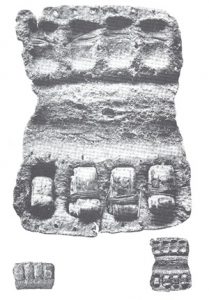
This teaching throws light on the well-known apothegm, “Be as careful of an unimportant commandment as of an important one” (m. Avot 2:1). In its original meaning, it was an alternative form of the counsel, “Keep…far from moral ugliness and whatever resembles ugliness” or “Flee from all evil and from everything that resembles it.” The introduction to the first part of the Sermon on the Mount with its reference to “the least of these commandments” (Matt. 5:19) could be summed up in the same way. Each of these summations is then spelled out in a series of a minori ad maius statements such as in Didache 3:2-6 and Matthew 5:21-37.
It seems reasonable to suppose that it is merely by chance that rabbinic literature has preserved only one view, namely that the all-encompassing ethical principle of the Torah is love of man. It is even possible that the other point of view, which marches under the banner of two great principles, did not find expression in the rabbinic sources that have come down to us simply because of the great authority of Rabbi Akiva. He followed the line of those who taught that love of one’s neighbor includes love of the Creator.
Conclusion
If we knew more about the streams of Jewish thought during the Second Commonwealth, the picture we have pieced together would probably be more straightforward and complete. We have dealt with two interconnected ideological and literary phenomena. The first of these is the concept that all the commandments of the Torah can be subsumed under one all-inclusive principle, or perhaps two. Those who said “one principle” pointed to “You shall love your neighbor as yourself”—the Golden Rule. Those who said “two principles” pointed to “You shall love the Lord your God” and the principle that is worded like it, “You shall love your neighbor as yourself.”
The second phenomenon is the notion that all the commandments in the Torah are embedded in the Ten Commandments, which must have led to the idea that the last five of those commandments are summed up in the command to love one’s neighbor. I think it likely that this idea was at one time far more current than we might be led to believe if we were to rely only on the sources that have come down to us. No doubt the idea lost ground because of the danger that the Decalogue might be overvalued at the expense of all the other commandments. The notion that all the commandments are inherent in the Decalogue probably originated both in the nature of the matter and the general tendency of Judaism, for we have a similar idea in the statement that all the essentials of the Torah depend on the Holiness Chapter, or on the two great principles, or even on the one great principle to love one’s neighbor.
This survey leads to the conclusion that during the Second Commonwealth there existed a homily based upon the last five of the Ten Commandments, accompanied by the verse, “You shall love your neighbor as yourself.” It is clear that this homily was the product of a specific religious approach, close to that of Hillel the Elder and of Rabbi Akiva. We may safely assume that in accordance with the anthropocentric standpoint which characterized Hillel and his school, the norm of loving God is included in the norm of loving one’s neighbor.[1]
Condensed and adapted from The Ten Commandments in History and Tradition (pp. 219-246), copyright © 1990 by The Magnes Press, Jerusalem, Israel.
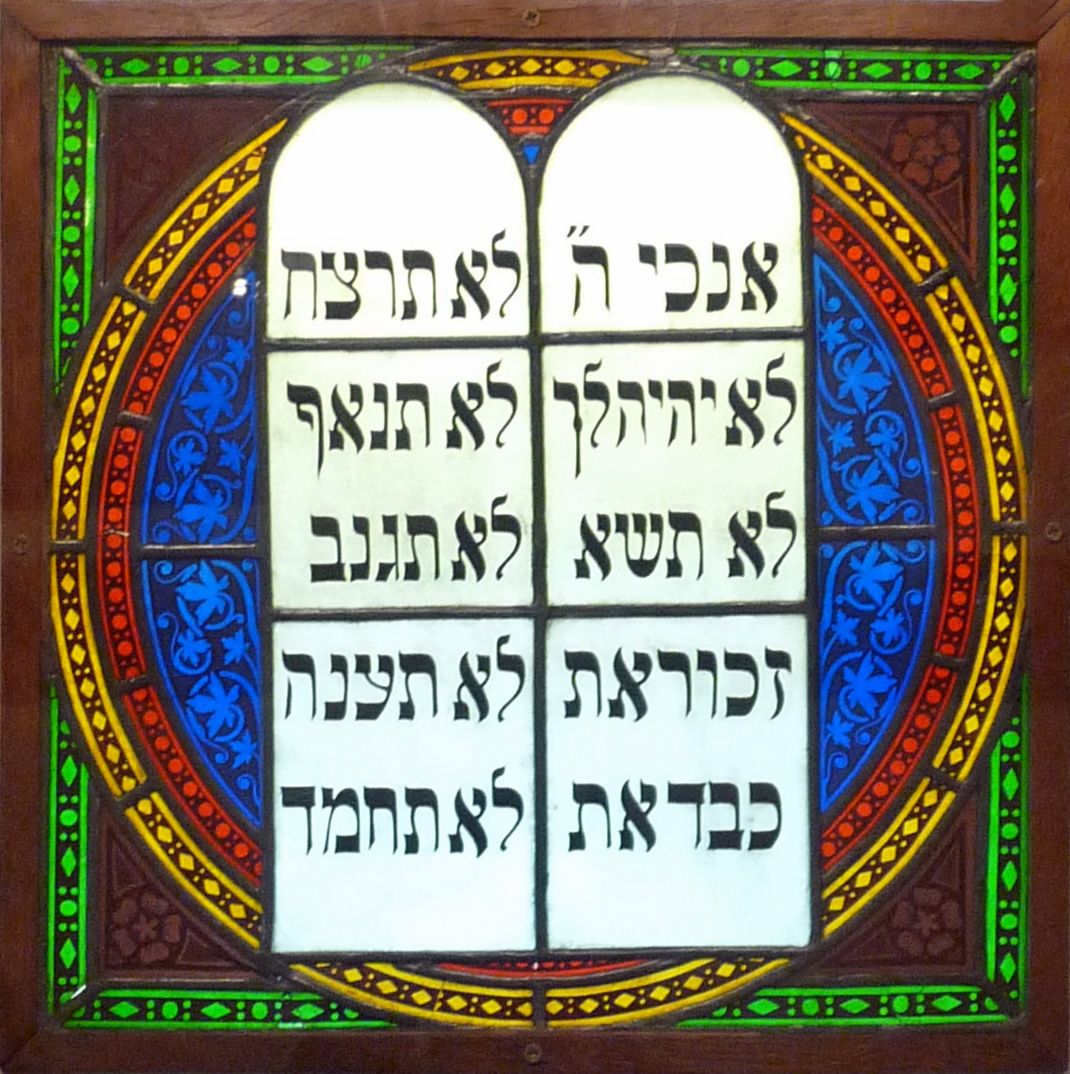
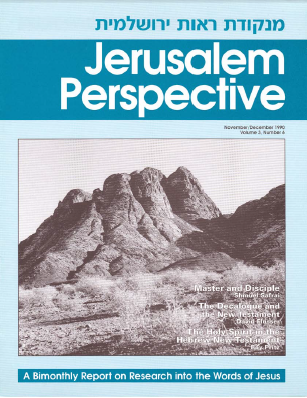
- [1] Further support for the conclusions reached in this article can be found in David Flusser, “The Two Great Principles and Sefer Pitron Torah.” ↩

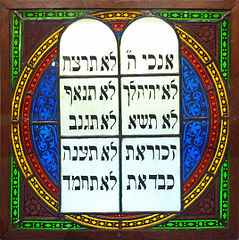
![David Flusser [1917-2000]](https://www.jerusalemperspective.com/wp-content/uploads/userphoto/21.jpg)
